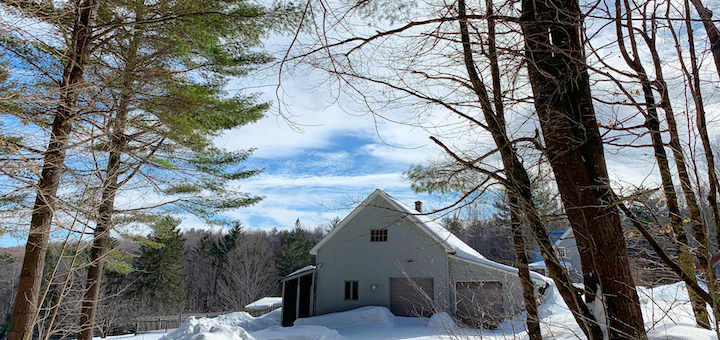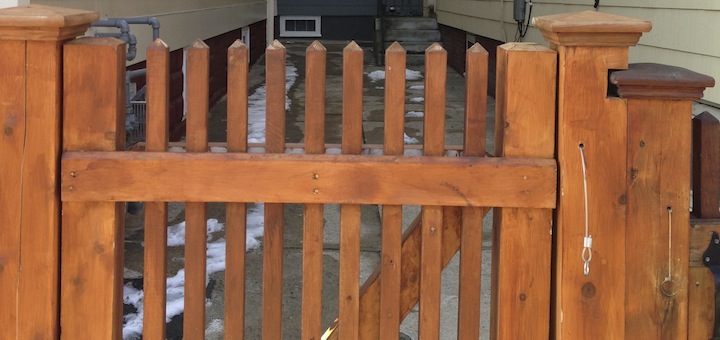We’ve all heard the personal finance truism: Keep three to six months of living expenses in the bank just in case. But do folks pursuing Financial Independence and Early Retirement (FIRE) really need an emergency fund?
Originally the emergency fund was conceived in response to the all too common cycle of debt and poverty. People who scrape by, living paycheck to paycheck, can be utterly devastated by an unexpected one time expense.
But we’re not living paycheck to paycheck. In a more established financially savvy household there are a couple of options instead of a traditional emergency fund:
- We have a sizable taxable investment account that could be tapped in an emergency. Since both our checking account and our taxable investment account are held at Fidelity, we can do same day transfers between them. The downside of this is that an emergency could conceivably force us to sell assets during a down market.
- We also have credit cards with high limits and no balance that could be used to smooth out a temporary cash flow crunch. We have two cards, both with limits above $15,000. Of course we always pay them off in full each month, so we usually have a sizable amount of accessible credit.
- We’re saving between $5k and $6k per month. An emergency that fell under that amount could be taken care of with pure cashflow.
With all of these options available, a dedicated “emergency fund” for people pursuing financial independence and early retirement seems redundant.
That being said, an emergency fund is the first thing I bring up when talking to a “normal” (non FIRE) friend about personal finance. It’s an essential set of training wheels on the way to being more financially responsible.
(CC photo courtesy of flickr user dumbledad)







Hmm, always a hotly debated topic in the FI bloggersphere.
I don’t like the idea of keeping a large amount of cash on hand, especially in our current low rate environment.
“The downside of this is that an emergency could conceivably force us to sell assets during a down market.”
True, but you could also be losing a lot of money as well. Imagine if you had kept $100,000 in cash between 2008 and now. Hindsight is always 20/20, but for me, cash == lost opportunity over the long haul.
Definitely agree that keeping a bunch of cash on hand is almost always a mistake. I feel like it’s a serious psychological hurdle though. Something deep in the DNA of a saver screams “hold tight to those dollars!”
We have $25K in an emergency account. I know, I know. But it helps me sleep at night and it’s really not that much in very-expensive-to-live-in Calgary.
Peace of mind is certainly worth something, that’s for sure! The difference between getting 1% (assuming high yield savings account) or 6% (picking an equities yield out of thin air) over 5 years is $7,180.39. ($33,455.64 – $26,275.25).
Is that a reasonable price to pay for that peace of mind? I don’t think there is a right answer. I believe that different people with different life experiences will have varying risk tolerances. And you shouldn’t feel bad about it.
I put this in the same category as paying off a low interest mortgage early. Sure it’s mathematically maybe not the right thing to do… but it makes people feel _amazing_ and that’s worth something!
Hi Marcelina,
I retain my emergency fund in my mortgage offset account, which charges interest on my outstanding balance at 6.45 % (for an investment home loan), and it:
a) reduces my P & I monthly repayments by close to $40.00 per month;
b) gives me peace of mind;
c) has been used in the past 2 years with two emergencies (unexpected death in the family and job loss) both of which required around $12,000.00 each. So that means, my emergency fund has taken a whooping loss of $24,000.00 over a two year period. Has that effected any other category of savings for me or my life style – no! Plus, what people don’t talk about is the peace of mind after paying the unexpected expenses….priceless!
Mind you, I keep a budget and will very likely increase my emergency fund from $20k to $30k – all of which will be held in my mortgage offset account.
d) Putting aside this money has made me more mindful about investing diligently in the stock market (Vanguard has been recommended by F.W which I will go with this year (investing $5k in my first year) and intend to contribute $5k to $6 k per annuam from this year and going forward (in my 30’s, professional, no debt outside of mortgage; two properties one has a mortgage).
Our family is guilty of keeping not only a large emergency fund, but various sinking funds as well. Although they have allowed us to sleep well at night, I have to admit that I sometime want to kick myself for being too conservative. But as my confidence in various investments tools grow (dividend growth stocks, P2P, motif, etc.), I am slowly find the nerves to move more of our family’s emergency fund into more productive assets.
Personal comfort level is important. There’s no sense in increasing your net worth by an extra 1% a year while not sleeping every night! 🙂
One thing you might consider is that many folks like to keep at least a part of their investment account in bonds or a bond-yield-similar instrument. With yields where they are now, a CD at an online bank could check this box for you. Maybe it’s only 5% of your stash… but it’s money that could be used in an emergency but also serves a diversification and risk offset purpose in your portfolio.
And even a 1% CD is better than nothing.
Thanks for the suggestion…I will look to see if our online account offers CDs that offer enough interest to justify taking the money away from our more liquid savings. The challenge is our online savings pays almost 1% simply because of the amount that we have in them. Not sure a CD would offer much more.
Yeah, if you are getting 1% in a savings account then you could easily count that as your “bond” allocation in this interest rate environment — doubling as an emergency fund. It’s probably what I would do given your circumstances. Nice work on finding a decently yielding savings account!
My wife and I keep a large emergency fund, specifically for her peace of mind, and for the peace of our marriage (I am against it, but would rather keep the peace and think that “perhaps she’s right and the market will tank at the same time we lose our jobs and the zombies attack and…. etc”).
Peace of mind is worth a small hit in portfolio performance. A great marriage is worth more than just about anything else! I admit I haven’t considered the zombie angle. Maybe I should pack away a couple of extra axes… 🙂
Just found your blog yesterday and I love reading your articles (plus I get to laugh!). We happen to be using all three of your bullets as our emergency fund as well (minus the Fidelity part). We figured our Roth contributions alone could get us buy for a year in a dire^3 emergency (dire^3 being double job losses, ran out of savings, no jobs or people to rent to in sight for 25 miles). The savings account does have a good chunk as well as the year ends here, but we’re discussing what we want to do with that. Minimum balance aside for buffering, the end of year checking amount indicates that we still have leftover money at the end of each money despite all the retirement contribs, so time to up something (more retirement contribs, mortgage payments, etc).
I’m a big fan of investing any excess cash. Like you said, a good idea to do something with it. Don’t let it sit by its lonesome in a checking account :)!
New reader of your blog here… I am the person who has definitely been living beyond his means for quite a while now. I have been living within a budget for the past couple of months (primarily follow Dave Ramsey’s advice for now to get out of debt). I discovered this blog while Googling the word “frugal”, just to see what was out there. Your posts are great! And I have to admit, I love what frugality could eventually bring me, which is a financial peace of mind. I rarely take the time to comment on sites, but given the quality of work you do, I wanted to say Thank You for the inspiration you and Mr. Frugalwoods bring to newbies like me. 😉
Thank you so much for saying hi, Kevin! And, huge congrats on starting out your frugal journey :). The ability to achieve financial peace really is a wonderful thing!
So glad to have found your blog today whilst googling frugal blogs. I feel like yours is the first blog that I have read that I can really relate to. We are financially sensible and relatively frugal but well, we can always do with more ideas and tips to get the belt really tightened in. Very interesting, useful and inspirational (and I never comment on blogs usually).
Hi Frugal People!
Thank you so much for your blog! I get so much inspiration and motivation from it. I also love the way you describe your marriage.
I have skimmed through the ‘Our Finances’ section of the blog, looking for tips on investing. I know nothing about it and want to learn how to make my money work for me and at least keep up with inflation. I would love to read a blog post on ‘Investment Tips for Beginners.’
P.S. Good luck with your baby! Wishing you a safe and healthy birth.
Suzanne in Vancouver
Hi Suzanne–thank you so much for reading :)! Our investing strategy is actually very simple and I talked about it a bit in my recent post: Why We Don’t Micromanage Our Money. I hope that might be helpful!
An interesting though whether to have an emergency fund or not. I always recommend an emergency fund to friends, however like yourself I don’t have a massive one to hand. I do have an emergency fund for car/large applicances failing, however not enough to live off (paycheck free), for months on end. This is mainly because I have a job thankfully with great job security and on a 20 year contract, and because I have savings that could be liquidated quickly in an emergency.
We keep a small amount, 10k set aside in a savings account for emergencies. We just feel better having quick access to it. We are also firm believers in paying cash for auto’s. How do you recommend saving for these? In a taxable account and then withdraw when you need to replace? Thanks
For me, an emergency fund is peace of mind!
I save around the same amount as you do per month (with no debt except the mortgage over my investment property), and I keep, and recommend keeping an emergency fund to friends and family – preferably up to 6 months.
I recently incurred funeral expenses (obviously not mine) and spent approximately $12,000.00 in a week. My monthly cash flow wouldn’t be able to cover that …..but que the emergency fund.
By keeping this ‘insurance money’, it has meant that I did not have to access my savings from anywhere else including savings for my car, savings for a holiday, savings for Christmas (currently at $500.00 end of April with an additional $150.00 to come in May), annual insurance, or investments (as you can see I have a budget and I love it). That experience has highlighted to me the importance of the emergency fund; plus as I am single, it allowed me to take time away from a competitive corporate profession to grieve because I could afford to take the time off.
It was a thrilling / scary experience to pay that much unexpectedly, and then with tripedation, looked at my finances only to realise nothing had changed – nothing except for the amount in my emergency fund (which is now my first priority to build).
For me , to maximise the benefits of retaining an emergency fund (fully funded is at $20,000, but likely to increase it to 9 months of expenses), I have my emergency fund in a mortgage offset account which means my monthly interest on my investment home loan is calculated by deducting the amount in my offset account – which means, for me, I have an extra $36.00 per month (and increasing; as I have decided to save for my next mortgage in the offset account) I do not have to pay towards my mortgage and therefore can contribute the $36.00 to something else (and, you have immediate access to the funds).
I suppose the reason I keep it boils down to life experience. I have had (one might say significant) set backs that have shown me how quickly $10 – $15 k can go, so for me, based on my life experience, an emergency fund is essential.
Dear Mrs. Frugalwoods and fellow frugal weirdo’s,
I would like to know: once you have hit financial independence and you have quit your job, how do you then make sure your emergency fund stays alive?
For example: when you used it up for some emergency and now you have no emergency fund left.
Do you calculate in advance how much you want to keep adding to this fund every month, when you’re calculating how much you’ll need to withdraw from your low-fee index funds every month after you ‘retire’?
It shouldn’t be an either/or proposition. Rather, each family needs to take their current financial situation into account and make a decision about how much should be needed, rather than a fixed multiple based on income. Where it sits is a separate discussion. Factoring into this decision of how much needs to be an assessment of the insurance coverage a family has (which rarely gets discussed in the FIRE space) but which directly affects what counts as an emergency. The emergency fund is essentially self-insurance.
This scaling approach affords the flexibility to shift emergency fund balances between an investment account and a bank account as FI approaches or as actual emergencies occur.
As an example, for a long time, we had a home warranty policy in place, costing us about $50 a month. We activated it a couple of times, and each time the $100 deductible was triggered and the actual benefit we netted was very small. And the one time we had a major appliance issue, there were unfortunate special circumstances that meant the policy wasn’t even applicable.
So about a year ago, we decided to cancel the policy and instead deposit $50 a month into a savings account. This now serves as an emergency fund for issues the home warranty used to cover. In the meantime, we still earn a little bit of interest, but we also don’t have to worry about various home issues like this breaking the budget. We have enough in there now to cover the replacement of a fairly medium-sized appliance.